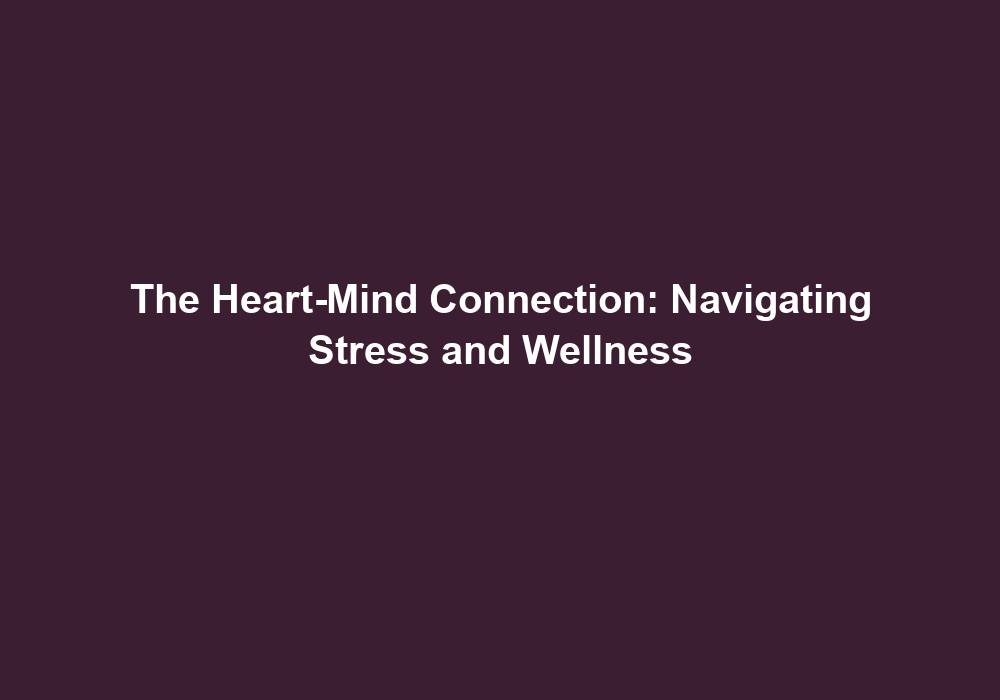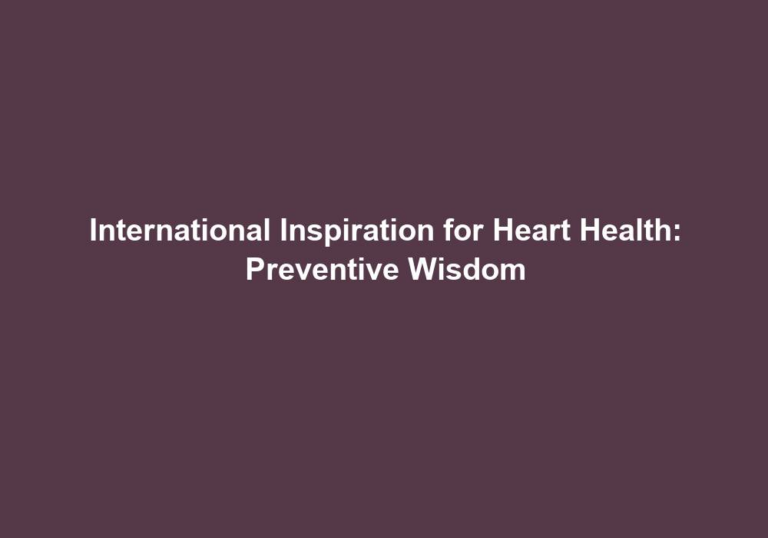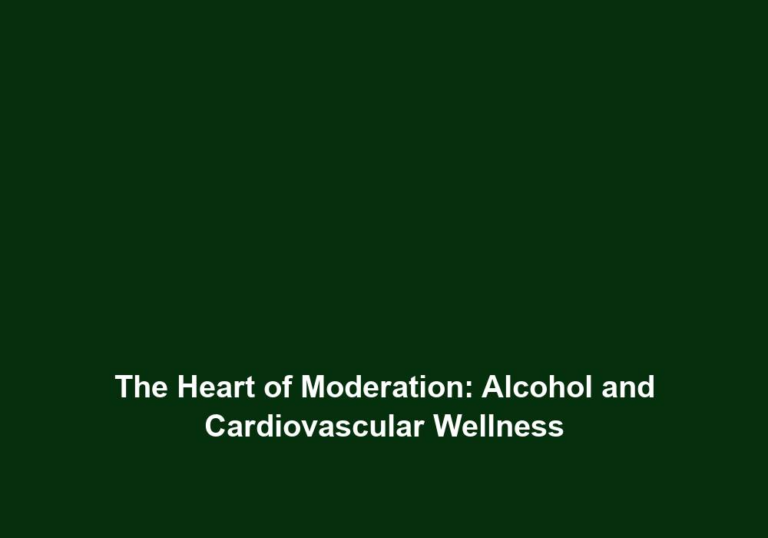The Heart-Mind Connection: Navigating Stress and Wellness
Stress has become an inevitable part of modern life, affecting our overall well-being and quality of life. However, understanding the profound connection between the heart and mind can provide valuable insights into managing and navigating stress effectively. In this article, we explore the intricate relationship between the heart and mind and explore strategies to promote wellness amidst the challenges of everyday life.
The Heart-Mind Connection
The heart and mind are intricately interconnected, with each influencing the other in profound ways. While the mind plays a significant role in perceiving and interpreting stressors, the heart responds to these stressors through various physiological and emotional mechanisms.
- Physiological Impact: Stress triggers the release of stress hormones, such as cortisol, which can have detrimental effects on the body. Prolonged exposure to stress can lead to increased blood pressure, weakened immune function, and an increased risk of cardiovascular diseases. Thus, managing stress is crucial for maintaining heart health.
Stress not only affects our mental state but also has a significant impact on our physical well-being. When we experience stress, our bodies release stress hormones like cortisol. These hormones can have negative effects on our cardiovascular system, leading to increased blood pressure and a weakened immune function. Prolonged exposure to stress can even contribute to an increased risk of developing cardiovascular diseases. Therefore, it is essential to develop effective stress management techniques to protect and maintain a healthy heart.
- Emotional Influence: Stress can also impact our emotional well-being, leading to feelings of anxiety, irritability, and even depression. These emotional states further affect the heart’s rhythm and can disrupt the balance of our overall well-being.
Stress not only affects our physical health but also has a significant impact on our emotional well-being. When we experience stress, it can manifest as feelings of anxiety, irritability, and even depression. These emotional states can disrupt the balance of our overall well-being, including the rhythm of our hearts. It is important to recognize the emotional impact of stress and take steps to address and manage these feelings in order to maintain a healthy heart and mind.
Strategies for Navigating Stress and Promoting Wellness
To effectively navigate stress and promote overall wellness, it is essential to adopt strategies that address both the heart and mind. Here are some practical approaches to consider:
1. Mindfulness and Meditation
Practicing mindfulness and meditation techniques can help cultivate a sense of calm and promote relaxation. These practices encourage focusing on the present moment, allowing your mind to detach from stressful thoughts. Regular meditation has been shown to reduce stress, lower blood pressure, and improve overall heart health.
Mindfulness and meditation are powerful tools for managing stress and promoting well-being. By practicing these techniques, you can train your mind to focus on the present moment, letting go of stressful thoughts and worries. This can help create a sense of calm and relaxation, reducing the impact of stress on your body and mind. Research has shown that regular meditation can lower blood pressure, reduce stress levels, and improve overall heart health. Integrating mindfulness and meditation into your daily routine can have a positive and lasting impact on your well-being.
2. Physical Activity
Engaging in regular physical activity not only benefits the body but also has a profound impact on mental well-being. Exercise releases endorphins, which are natural mood boosters. It can also improve cardiovascular health, lower stress levels, and reduce anxiety and depression. Aim for at least 30 minutes of moderate exercise, such as brisk walking or jogging, most days of the week.
Physical activity is not only important for maintaining a healthy body but also plays a crucial role in promoting mental well-being. When we engage in regular exercise, our bodies release endorphins, which are natural mood-enhancing chemicals. These endorphins help boost our mood, reduce stress levels, and alleviate symptoms of anxiety and depression. Additionally, exercise improves cardiovascular health, which is directly linked to the well-being of our hearts. Aim to incorporate at least 30 minutes of moderate exercise, such as brisk walking or jogging, into your daily routine to experience the mental and physical benefits.
3. Healthy Diet
Maintaining a balanced and nutritious diet plays a significant role in managing stress and promoting heart health. Avoid processed foods high in sugar and unhealthy fats, as these can contribute to inflammation and increase the risk of cardiovascular diseases. Instead, focus on consuming whole foods, including fruits, vegetables, lean proteins, and healthy fats, to provide your body with essential nutrients and antioxidants.
A healthy diet is essential for managing stress and supporting the health of your heart. Avoiding processed foods that are high in sugar and unhealthy fats is crucial, as these can contribute to inflammation in the body and increase the risk of developing cardiovascular diseases. Instead, prioritize whole foods that are rich in nutrients and antioxidants. Incorporate a variety of fruits, vegetables, lean proteins, and healthy fats into your meals to provide your body with the necessary fuel to combat stress and promote heart health.
4. Adequate Sleep
Quality sleep is crucial for both mental and physical well-being. Lack of sleep can increase stress levels, impair cognitive function, and negatively impact heart health. Aim for 7-9 hours of uninterrupted sleep each night, and establish a relaxing bedtime routine to promote optimal sleep quality.
Getting enough quality sleep is essential for managing stress and supporting overall well-being. Lack of sleep can contribute to increased stress levels, impaired cognitive function, and negatively affect the health of your heart. Aim for 7-9 hours of uninterrupted sleep each night to allow your body and mind to rest and rejuvenate. Establishing a relaxing bedtime routine can also help promote optimal sleep quality. Create a calming environment, avoid electronic devices before bed, and engage in relaxation techniques such as reading or taking a warm bath to prepare your body and mind for a restful night’s sleep.
5. Social Support
Building and nurturing strong social connections can significantly contribute to stress reduction and overall well-being. Surrounding yourself with supportive and understanding individuals allows you to share your experiences and seek comfort during challenging times. Engage in activities with loved ones, join social groups, or consider seeking professional support to help navigate stress and promote emotional wellness.
Social support plays a vital role in managing stress and promoting emotional well-being. Having a network of supportive and understanding individuals can provide comfort and assistance during challenging times. Engaging in activities with loved ones, joining social groups, or seeking professional support can help alleviate stress and create a sense of connectedness. Sharing your experiences and emotions with others can also provide valuable perspectives and support in navigating stress and promoting overall well-being.
6. Stress Management Techniques
Adopting stress management techniques can enhance your ability to cope with stress effectively. Consider techniques such as deep breathing exercises, journaling, or engaging in hobbies that bring you joy and relaxation. These activities can help you unwind, reduce stress levels, and promote emotional balance.
Incorporating stress management techniques into your daily routine can empower you to effectively cope with stress. Deep breathing exercises, journaling, and engaging in hobbies that bring you joy and relaxation are all effective ways to unwind and reduce stress levels. Deep breathing exercises can help activate the body’s relaxation response, promoting a sense of calm and reducing stress. Journaling allows you to express your thoughts and emotions, providing a healthy outlet for stress. Engaging in hobbies that bring you joy and relaxation can also help shift your focus away from stressors and promote emotional balance. Experiment with different stress management techniques to discover what works best for you and make them a regular part of your routine.
Conclusion
Understanding the intricate relationship between the heart and mind is crucial for effectively managing stress and promoting overall wellness. By incorporating strategies such as mindfulness and meditation, physical activity, a healthy diet, adequate sleep, social support, and stress management techniques into your daily routine, you can navigate stress and prioritize your heart and mind’s well-being. Remember, small changes can have a significant impact on your overall quality of life, allowing you to lead a more balanced and fulfilling existence.







